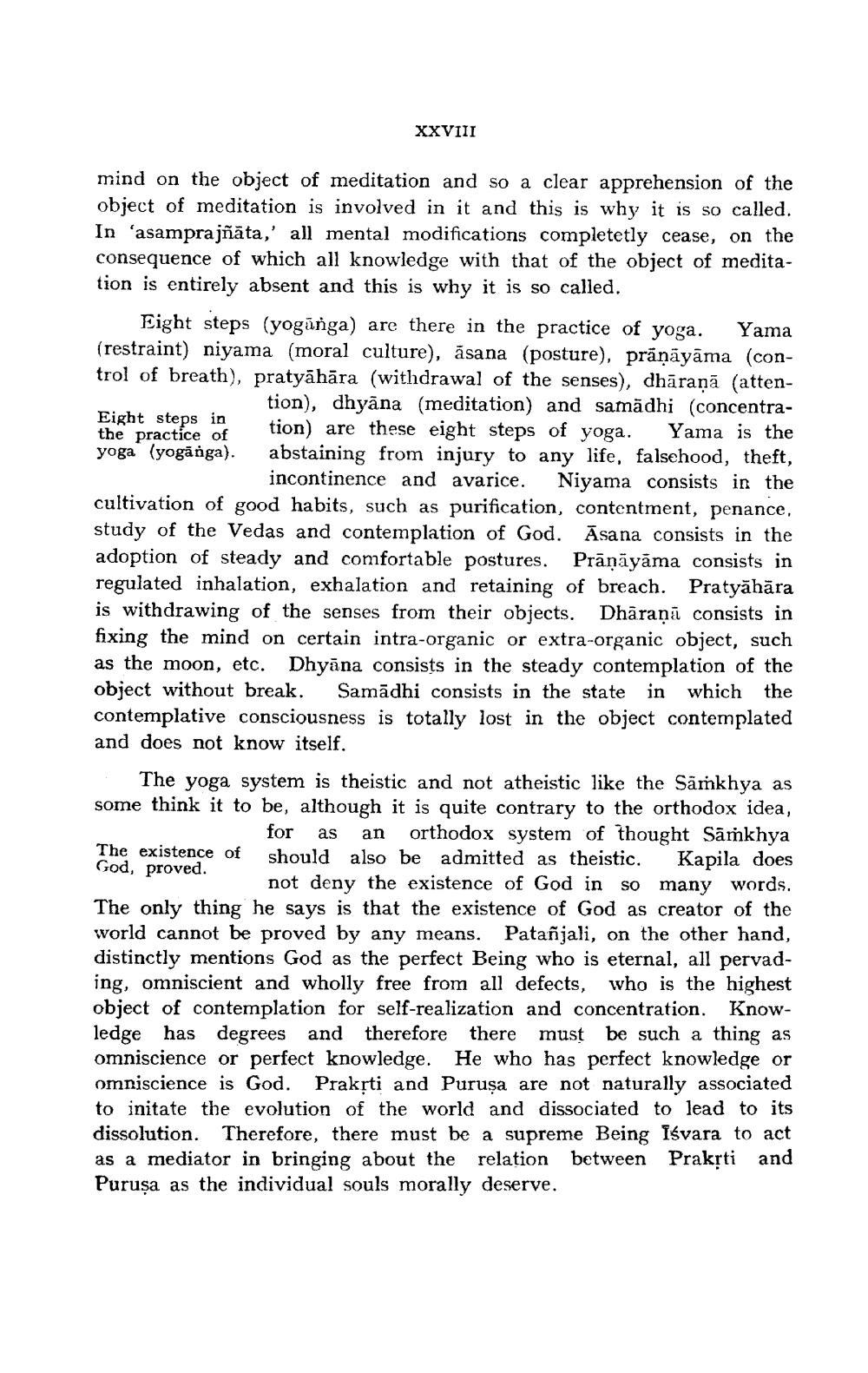________________
XXVIII
mind on the object of meditation and so a clear apprehension of the object of meditation is involved in it and this is why it is so called. In ‘asamprajñāta,' all mental modifications completetly cease, on the consequence of which all knowledge with that of the object of meditation is entirely absent and this is why it is so called.
Eight steps (yogānga) are there in the practice of yoga. Yama (restraint) niyama (moral culture), āsana (posture), präņāyāma (control of breath), pratyāhāra (withdrawal of the senses), dhāraņā (atten
tion), dhyāna (meditation) and samadhi (concentraEight steps in the practice of
tion) are these eight steps of yoga. Yama is the yoga (yogānga). abstaining from injury to any life, falsehood, theft,
incontinence and avarice. Niyama consists in the cultivation of good habits, such as purification, contentment, penance, study of the Vedas and contemplation of God. Asana consists in the adoption of steady and comfortable postures. Prāņāyāma consists in regulated inhalation, exhalation and retaining of breach. Pratyāhāra is withdrawing of the senses from their objects. Dhāraņā consists in fixing the mind on certain intra-organic or extra-organic object, such as the moon, etc. Dhyāna consists in the steady contemplation of the object without break. Samādhi consists in the state in which the contemplative consciousness is totally lost in the object contemplated and does not know itself.
The yoga system is theistic and not atheistic like the Samkhya as some think it to be, although it is quite contrary to the orthodox idea,
for as an orthodox system of thought Sāmkhya The existence of should also be admitted as theistic. Kapila does God, proved.
not deny the existence of God in so many words. The only thing he says is that the existence of God as creator of the world cannot be proved by any means. Patañjali, on the other hand, distinctly mentions God as the perfect Being who is eternal, all pervading, omniscient and wholly free from all defects, who is the highest object of contemplation for self-realization and concentration. Knowledge has degrees and therefore there must be such a thing as omniscience or perfect knowledge. He who has perfect knowledge or omniscience is God. Prakrti and Puruşa are not naturally associated to initate the evolution of the world and dissociated to lead to its dissolution. Therefore, there must be a supreme Being Isvara to act
a mediator in bringing about the relation between Prakrti and Purusa as the individual souls morally deserve.




